Here are Natural Pesticides for Garden and their recipes. They’re safe, effective, and inexpensive, and your plants will thank you for these!
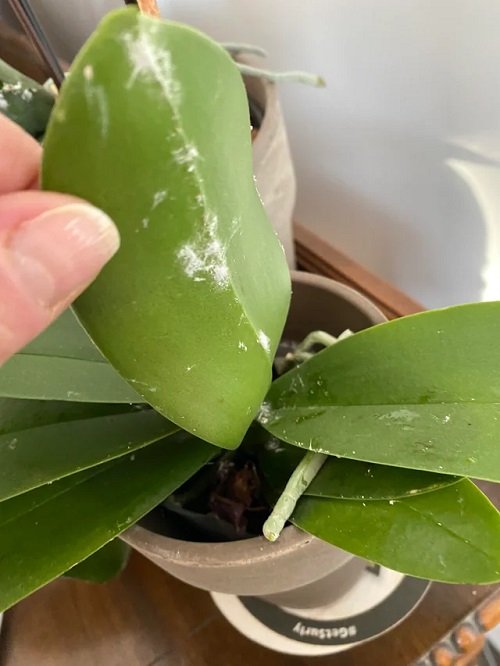
There’s nothing more annoying for a gardener than seeing pests sucking their plants. Chemical pesticides are the best way to get rid of them, but they are detrimental to the environment; that is why using Natural Pesticides for Gardens is the safest and best option.
This Amazing Natural Pesticide Recipe Is So Effective You Can Get Rid Of Pests In No Time
Natural Pesticides for Garden
1. Neem Oil
Neem oil is among the best pesticide for vegetable gardens; it covers more than 200 species of chewing and sucking insects. It’s completely non-toxic.
Recipe: Take one-liter warm water and mix a half teaspoon of insecticidal soap. Stirring vigorously, mix one teaspoon of neem oil in it. Fill it in a sprayer. Keep shaking the sprayer; otherwise, neem oil will start floating on the surface. You can use the spray within eight hours, but the fresh spray is recommended.
Do You Spray Neem Oil on Soil or Leaves? Best Way to Do It
2. Tomato Leaves
If you are growing tomatoes in your garden, then why not make full use of them? Tomato leaves contain compounds called alkaloids, which are toxic to insects and some tender pests.
Recipe: Chop about two cups of tomato leaves and put them in four cups of water. Steep it overnight and spray it on the infected plant.
3. Tobacco
If you’re looking for natural pesticides for vegetables – tobacco’s your answer. It is a great way to combat worms, aphids, and caterpillars all at once.
Note: It must not be used on plants of the family Solanaceae, which include popular plants like eggplant, tomato, potato, or peppers.
Recipe: Put 2 tablespoons of tobacco leaves in one gallon of water, stir, and let it steep for an hour or two (the more time, the stronger). Add one teaspoon of dishwashing soap and a pinch of hot pepper powder and stir it again. Strain and fill in the sprayer.
Tobacco Uses in the Garden | How Just a Cigarette of Tobacco is Useful for Plants
4. Chrysanthemum
You can also take the help of mums. Chrysanthemum flowers contain a chemical named pyrethrum, which affects the pest’s nervous system.
Recipe: Take 100 grams of dried chrysanthemum flowers and boil them in 1-liter water for 30 minutes on low flame. It can easily kill many flying and crawling insects.
9 Best Green Chrysanthemum Varieties and Meaning
5. Garlic or Onion spray
Garlic/onion works as a natural repellent for gardens; its spray causes a detrimental burning sensation to pests and insects.
Recipe: To prepare this, take a bulb of garlic and an onion and grind it. Mix a tablespoon of pepper and insecticidal soap in 1 liter of water. Leave this for an hour and spray it on the plants.
Pour Water Over Crushed Garlic, then Spray it on Your Plants
6. Orange Peels
Orange peel contains d-limonene, which is an oil nutrition rated as a natural plant insecticide. If you don’t have orange peel, you can use orange oil.
Recipe: To make it, boil one liter of water and put two cups of orange peels in it. Strain and add a few drops of neem oil and insecticidal soap. Your orange peel spray is ready.
15 Awesome Citrus Peel Uses In Garden
7. Pepper
Pepper is not only a popular spice; you can use it in gardening, too – as a natural pesticide. All you need is to mix it with vegetable oil and soap.
Recipe: Boil one cup of water, mix 3 tablespoons of hot pepper powder in it, and let it steep for an hour. Strain it with a cotton cloth and mix 1 tablespoon dish soap and 1 tablespoon of vegetable oil. Dilute it in one liter of water and spray.
Growing Hot Peppers In Containers | How To Grow Chili Peppers In Pots
8. Salt
Salt spray can be used to control spider mites, caterpillars, and other chewing insects. It increases sodium levels and controls pests easily.
Recipe: Making this is super easy; just mix 2 tablespoons of salt with a gallon of water and spray thoroughly on the leaves of your plant.
9. Diatomaceous Earth
This fossilized algae powder works by dehydrating pests on contact. It’s arguably the best natural pesticide and works against ants, slugs, snails, and many crawling insects.
Recipe: Simply dust the Diatomaceous Earth around the base of your plants or directly on the pests. It’ll take care of the rest itself.
If You’re A Gardener, Learn About These 13 Diatomaceous Earth Uses
10. Soapy Water Spray
Don’t underestimate this simple solution. It can be surprisingly effective against aphids, spider mites, and other soft-bodied pests. The soap disrupts the pests’ protective coating, causing them to dehydrate and die.
Recipe: Just mix a tablespoon of mild dish soap with a gallon of water and spray this solution directly on the infested areas.
10 Amazing Irish Spring Soap Uses in Garden
11. Coffee Grounds
You shouldn’t throw used coffee grounds away as the caffeine content in it is a repellent of pests. The rough texture is also uncomfortable for pests to crawl on.
Recipe: Take used coffee grounds and scatter them around your plants to deter slugs and snails.
Note: It will also irritate cats and send them away, so use it carefully if you have one.
Which Plants Like and Do Not Like Coffee Grounds
Bonus: Beneficial Insects
Instead of fighting pests with chemicals, you should invite their natural predators to your garden!
How it Works: Ladybugs, praying mantises, and lacewings feast on aphids, mealybugs, and other common garden pests. Just plant flowers like dill, fennel, and marigolds to attract these beneficial insects, and they’ll do your job.
9 Master Gardener’s Tricks to Improve Beneficial Insects in Garden
Tips for Using Natural Pesticides for Garden
- Test the pesticide you’re using on a small portion of the plant before spraying it all over because some plants are sensitive to used ingredients.
- Always wear gloves and eyeglasses when dealing with pepper and Neem.
- Avoid spraying plants on windy days, spray in late afternoon or evening for better results.
- Don’t use a dish soap that contains bleach.
- Make sure to spray the underside of leaves because it is the pest’s favorite place to hide.
- Plant natural pesticides work slowly, be patient and use them persistently for better results.


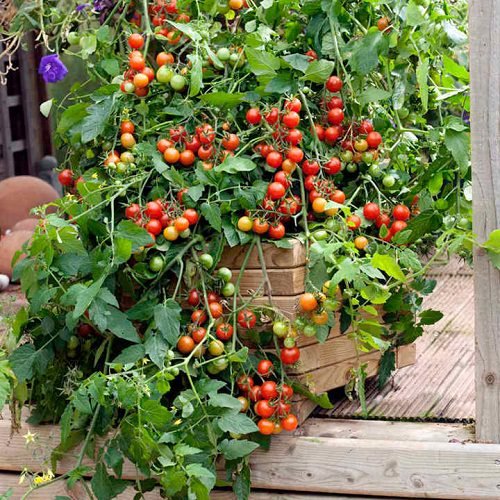
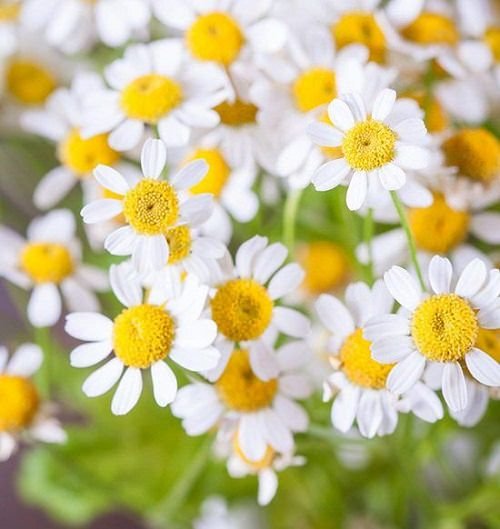
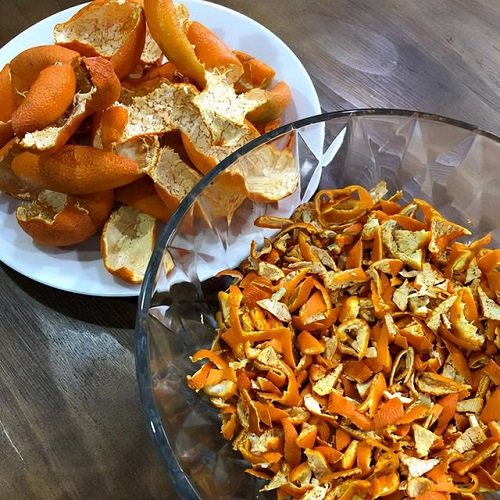

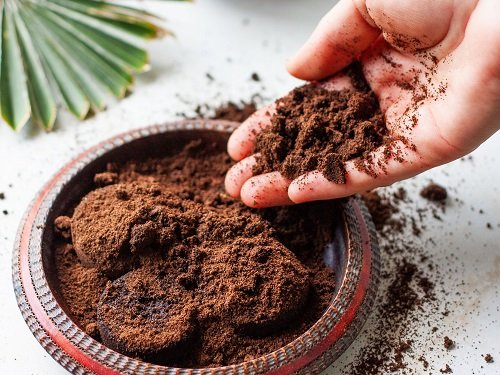

Neem oil can hurt bees, so don’t use it on blooming plants. Be very careful with using this “natural” spray. I use Neem oil, but I use it very sparingly and never on a flowering plant!
What is insecticidal soap? Is it available in India? If yes, by what name? TIA
You can read this article to learn what is insecticidal soap
If it is unavailable at your location you can easily make it at home. To learn how to make it read this.
HELP!! JapanesebBeetles are eating my roses and Crrpe Myrtle buds. I hand pick 100’s and kill them by dropping them in soapy water; however, I kill 1 hundred and 300 hatch out! I’m fighting a loosing battle but I can’t give up. Out of desperation I sprayed with a strong solution of Spectracide and cried when I saw all the dead “good guys”!…..so, that is not an option.
Is there any help for my nightmare??
I don’t know how big your Crepe Myrtle is, but if practical, you could try Diatomaceous Earth. It’s a powder-type substance that consists of ancient fossilised shells (I think?) that have sharp edges on all sides. The way it works is that when a insect crawls over the powder, they are sort of injured in that their soft body or even the hard shell will be pierced or sliced. This allows crucial moisture to leave their bodies, leading to dehydration and death. Apparently it will affect the adults as well as the young, but even if only effective on soft-bodied new crawlers, eventually your infestation will have to end because no more hatchings means no more adults. Pretty sure it does effect the adults too, though.
IMPORTANT!!!: MAKE SURE YOU BUY DIATOMACEOUS EARTH AT THE GARDEN NURSERY. THERE’S ALSO A KIND OF DM USED IN POOL FILTERS THAT IS NOT SUITABLE FOR PEST CONTROL (might have chemical component you don’t want in the garden) Diatomaceous Earth in pure form is acceptable for Organic Methods used in Vegetable Garden. Probably not a bad idea to waer a dust mask and eye protection while in use. You probably could just put a little in the crotches of the branches, and eventually the bugs will have to crawl around in it; if most of the activity seems to be on the leaves, put the DM there. You don’t need to create a huge cloud of powder around your tree for it to be effective. GOOD LUCK!
I just spent a whole month picking the beetles off by hand. Unfortunately that is the safest way to get rid of them for the environment. Also I save and crush eggshells in my food processor to use as the diamatious earth substitute. They don’t like to walk on it. Also a weak solution of cinammon and water also helps. Then after all that they just disappeared. They had been attacking my crepe myrtle and fruit trees and also my wild roses. Good luck with those beasts!!!!
I have to admit that this one is new to me, but I ve seen enough mentions of it now to warrant its inclusion here as a natural pesticide. Tomato plants are part of the nightshade family, and as such, contain alkaloids such as the aptly named tomatine, which can effectively control aphids and other insects. ? ? To make tomato leaf spray for a natural insecticide, chop two cups of fresh tomato leaves (which can be taken from the bottom part of the plant) into one quart of water, and let steep overnight. Strain out the plant material and spray onto plant foliage.
My lemon tree is in a pot, the first time it produce 5 lemons, the lemons remain very small, started to turn yellow and drop off the tree, the lemon tree is four years old. I give the it citrus fertilizer. I’m from Barbados, a very warm climate.
I would seriously like to know more about the production area suitable for planting Ylang Ylang please. Thx.